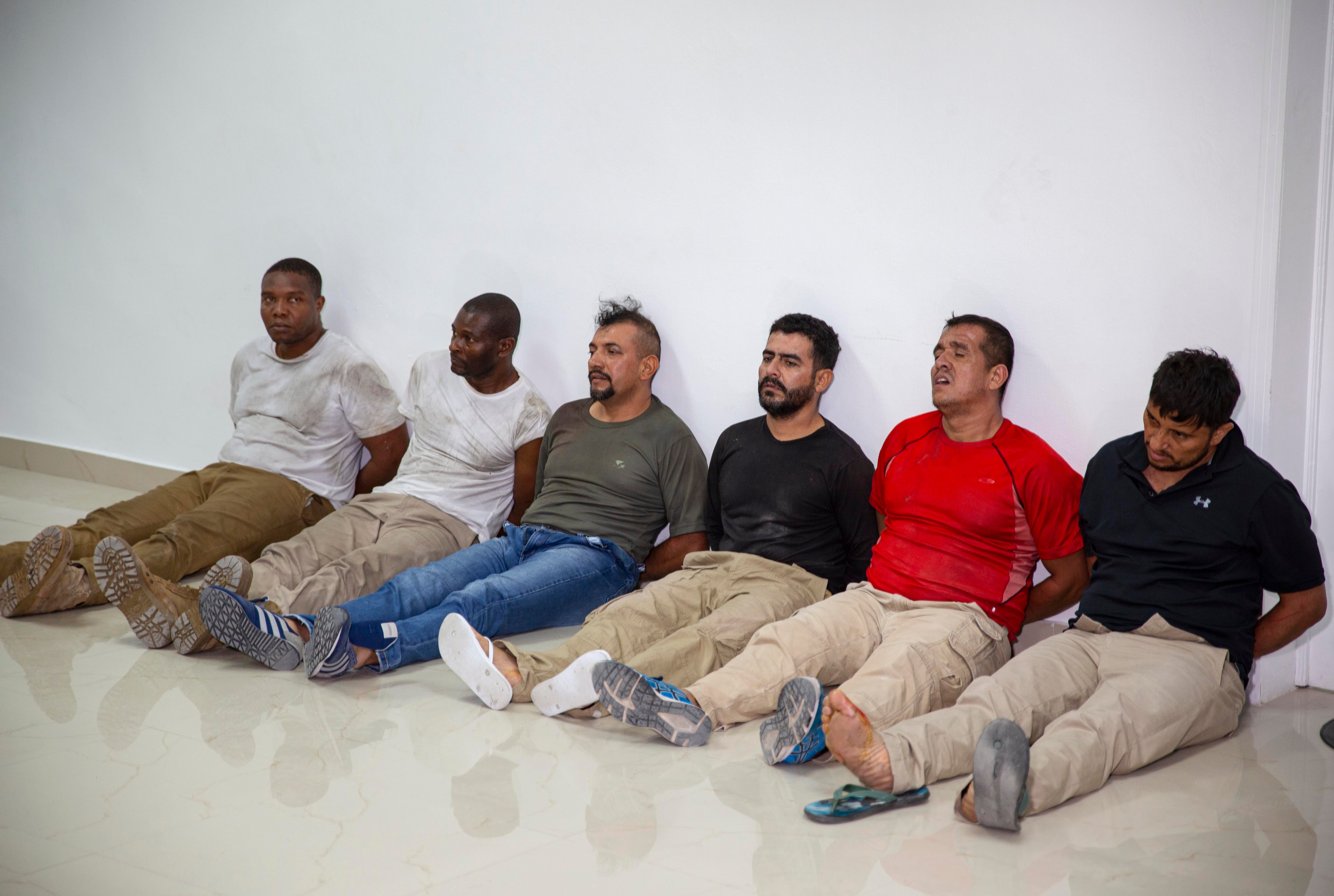US charges 4 key suspects in killing of Haiti’s president
Four key suspects in the killing of Haiti’s president appear for the first time in U.S. federal court to face accusations that they plotted and participated in his assassination, a day after they were transferred to the United States for prosecution

Four key suspects in the killing of Haiti's president appeared for the first time in U.S. federal court Wednesday to face accusations that they plotted and participated in his assassination, a day after they were transferred to the United States for prosecution.
Haitian-Americans James Solages, Joseph Vincent and Christian Emmanuel Sanon, and Colombian citizen Germán Rivera García, looked calm as they entered a federal court in Miami wearing beige prisoner uniforms with their hands and ankles shackled.
They did not speak at the hearing, except to petition a public defender when Judged Alicia Otazo-Reyes asked each of them if they can afford to pay an attorney.
Magistrate Judge Alicia Otazo-Reyes read the charges and appointed a different attorney to each of them.
Solages, 37, Vincent, 57, and Rivera, 44, were among the first arrested after Jovenel Moïse was shot 12 times at his private home near the capital of Port-au-Prince on July, 7 2021. All three are accused of conspiring to commit murder or kidnapping outside the U.S. and providing material support and resources resulting in death.
Sanon, a pastor, doctor and failed businessman, 54, is charged with conspiring to smuggle goods from the United States and cause export information not to be filed, as well as with smuggling goods from the United States and providing unlawful export information. Court documents state that he allegedly shipped 20 ballistic vests to Haiti, but that the items shipped were described as “medical X-ray vests and school supplies.”
If convicted, Solages, Vincent and Rivera face up to life imprisonment. Sanon, whose associates have suggested he was deceived by the real and still unidentified masterminds behind the assassination, faces up to 20 years if convicted.
A total of seven suspects in the case are now in U.S. custody facing charges in South Florida for their alleged participation in the killing of the Haitian leader. Among them are Rivera and Mario Palacios, two among nearly two dozen former Colombian soldiers charged in the case.
The other suspects already in U.S. custody are Rodolphe Jaar, a former U.S. government informant and a Haitian businessman who was extradited from the Dominican Republic, where he was detained in January 2022.
Also arrested that same month was Mario Antonio Palacios Palacios, a former Colombian soldier deported by Jamaica after fleeing there from Haiti. He was detained by U.S. officials in Panama during a layover while en route to Colombia.
In January 2022, authorities arrested former Haitian Sen. John Joël Joseph, who also had fled to Jamaica.
In Haiti, the case is at virtual standstill amid death threats that have spooked local judges.
According to court documents, two months before Moïse was killed, Vincent texted Solages a video of a cat “reacting alertly” to the sound of gunfire. Solages laughed, prompting Vincent to respond: “That’s the way Jovenel will be pretty much, but (sooner) if you guys really up to it!. Then Solages responded that “(this) cat will never come back,” and “trust me brother, we definitely working our final decision," the documents stated.
Later, in June, some 20 former Colombian soldiers were recruited to supposedly help arrest the president and protect Sanon, who envisioned himself as Haiti’s new leader. Rivera was in charge of that group, according to the documents that are part of the case in South Florida.
Authorities said the plan was to detain Moïse and whisk him to an unidentified location by plane, but that plot fell through when the suspects couldn’t find a plane or sufficient weapons.
A day before the killing, Solages falsely told other suspects that it was a CIA operation and that the mission was to kill the president, according to the documents. Shortly before the killing, authorities said, Solages shouted that it was allegedly a DEA operation to ensure compliance from the president’s security detail.
About a year after the killing, U.S. authorities say they interviewed Solages, Vincent and Rivera while they were in Haitian custody and that they agreed to talk.
___
Associated Press writer Danica Coto in San Juan contributed to this report.